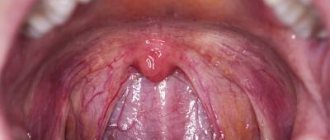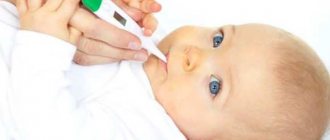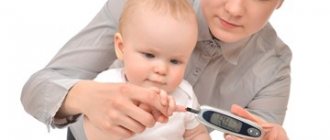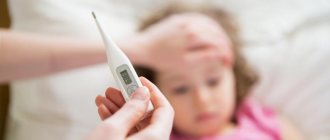Possible reasons
When a child’s upper or lower lip swells, parents have only one question: “why is this happening?” The reason for this may be various factors, including:
- an allergic reaction to any allergen, with severe swelling - Quincke's edema;
- the result of non-observance of personal hygiene - often a consequence of biting nails, using a dirty towel, and unwillingness to wash hands;
- presence of dental problems, poor oral hygiene;
- regular lip biting, for example, under stress or neurosis;
- infectious disease in the oral cavity;
- injury to the lips, for example, after a blow;
- swelling may also be due to teething;
- consequence of a burn from a hot drink;
- insect bites as a consequence of individual intolerance;
- the result of erroneous actions of the dentist, when the treatment was incorrectly selected or low-quality materials were used;
- the inflammatory process can be caused, for example, by a viral disease, in particular the herpes virus;
- if swelling accompanies numbness, then there may be problems with the nerves of the facial muscles.
Causes of swollen lips in a child
Edema is the body's reaction to an irritant. Therefore, if a baby or child has a swollen upper lip, there can be many reasons. The child experiences internal discomfort. When it happens to young children, it is doubly more difficult, because they cannot tell what is happening to them. The main goal of therapy is to establish an accurate diagnosis.
The swelling appears on one or both lips at once, is located in the center, or moves to the side. It manifests itself as an independent pathology, and is also accompanied by mucosal defects and the development of purulent processes.
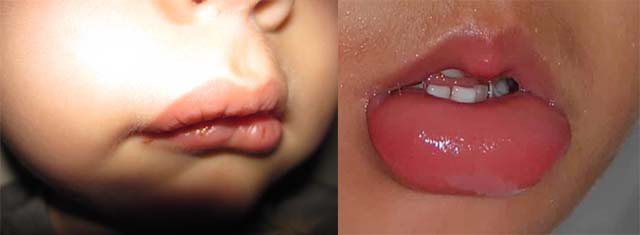
The simplest reason why lips swell is due to mechanical damage or injury. Swelling often occurs due to dental diseases.
Also, the essence of the problem may be hidden behind diseases of the internal organs. The use of external medications will not be effective.
It is not always possible to determine the provoking factor yourself. Therefore, it is better to consult a pediatrician. The doctor will examine you and, if necessary, refer you to a specialist. Sometimes it is enough to examine the child to determine exactly what caused the problem.
After visiting the dentist
It is not uncommon for a child’s lip to become swollen after dental treatment. This is how an allergy to painkillers may manifest itself after anesthesia at the dentist. Minor swelling is considered normal when performing manipulations in the mouth. Sometimes parents wonder what to do and how to help their child after tooth extraction when the lip is swollen. A cold compress with ice can help.
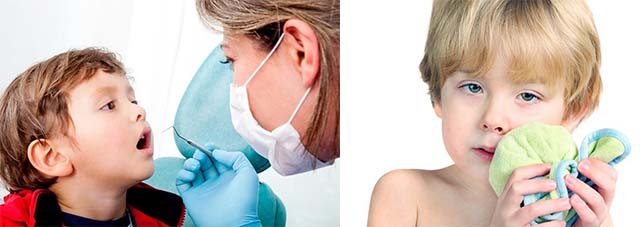
Some doctors do not follow the rules of disinfection, which is why even a banal examination of the oral cavity can cause an infection in the oral cavity. This in turn leads to herpes. Another common dental problem that causes swelling is periodontitis. Treatment is prescribed by a doctor after confirming the diagnosis. Flux, accompanied by elevated temperature, is treated by a surgeon.
We recommend further reading: Swelling of the upper lip
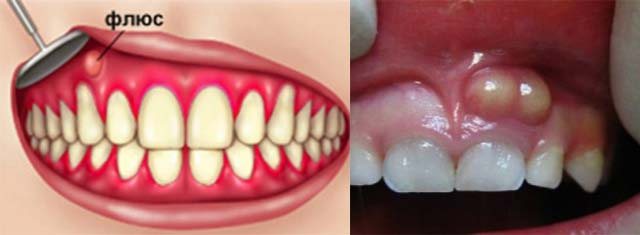
It happens that the symptoms do not go away within 24 hours, and the following alarming symptoms appear:
- soreness in the area under the nose;
- pain at the injection site;
- lips take on an unnatural shape.
Such symptoms are characteristic of inflammation, so you should immediately seek medical help.
Allergy
Allergies can cause swelling of the mouth and swelling of the upper lip in a child. Pathology is accompanied by other reactions of the body:
- scabies;
- rashes on the body;
- redness and itching of the skin.
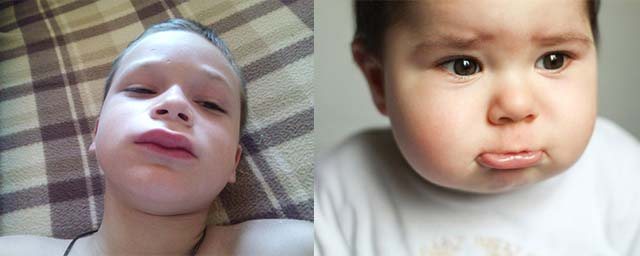
In addition to an allergic reaction to a food product, this condition can occur to substances contained in medications, toothpaste, and hygiene products. It is important to eliminate the source of the allergy in order to prevent the patient's condition from worsening. If you cannot independently determine the cause of the allergy, the patient must be immediately shown to a specialist. Based on the testing data, the allergist will be able to accurately determine the cause of the disease and prescribe effective treatment. The sooner the patient sees a doctor, the faster his condition will improve and the alarming symptoms will go away.
Teething
During teething, not only problems appear with the gums, but with the entire oral mucosa. Swelling affects the part of the lip that is closest to the site of the growing tooth. The symptoms go away on their own. But this does not mean that parents should not take measures to alleviate their child’s condition.
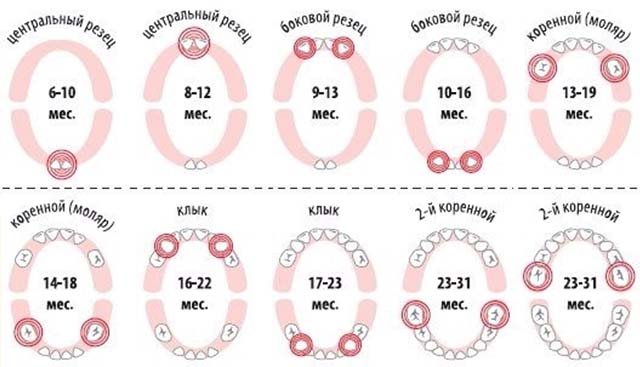
If the development of a tumor is the result of teething, then a special ointment can help. Apply it to the lips, it will relieve swelling and protect against infection in the wounds.
Inflammatory process
The development of inflammation can be triggered by injury or infection. The main cause of oral disease is hygiene that is performed incorrectly. Bacteria penetrate into wounds in the oral mucosa, causing inflammation, accompanied by the appearance of swelling of the upper or lower lip. In addition to the main symptom, pain appears in the jaw area and the child’s condition worsens.
In children with stomatitis, yellow ulcers appear, and the child’s lips are swollen and painful. The disease is not dangerous, but unpleasant for a small patient.
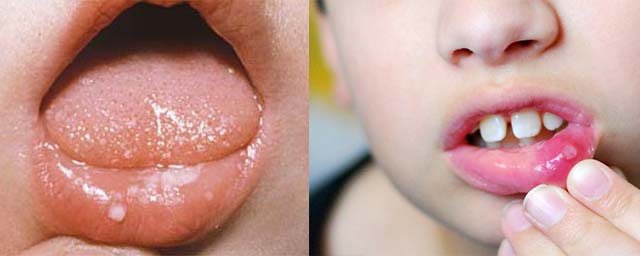
The lack of treatment for a child’s condition in which his upper lip is swollen leads to the development of dangerous pathologies. Only a doctor can prescribe the correct therapy. Parents should remember that if a child's lower lip is swollen, this may be a symptom of inflammation.
We recommend additional reading: Causes of enlargement, expansion and swelling of the ventricles of the brain in a newborn
Virus
An increase in the volume of one or both lips can be caused by a herpes infection or stomatitis. In this case, not only could the lower or upper lip swell, but the lips could also swell and the temperature rise. The peculiarity of a viral disease lies in its specific symptoms. Ulcers appear in the mouth and lips and wounds become covered with crusts.
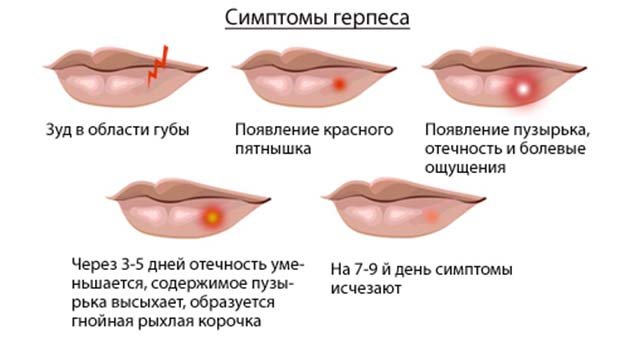
Treatment is carried out only under medical supervision. Because self-medication for this pathology leads to relapses of the disease.
Other illnesses or injuries
There are many other causes of puffy, swollen, and swollen baby lips. One of the common problems of the disease is mucosal injury. The child's habit of biting his lips can cause damage to the soft tissues of the lips.
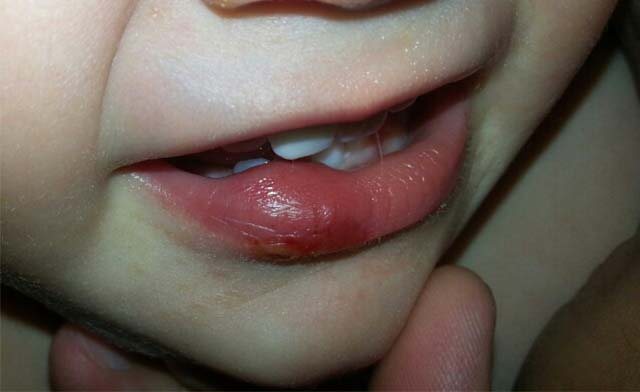
With this problem, they usually develop lip deformation. Infections penetrate the wounds; in addition to the main symptom, other unpleasant symptoms appear. It is necessary to treat the injured area with hydrogen peroxide and lubricate it with iodine.
Characteristic manifestations

In pediatrics, swelling occurs on any part of a child’s lips, but the most common situation is when the upper lip swells.
A swollen sponge may be accompanied by the following symptoms:
- changing its anatomical shape;
- swelling of the oral cavity, tongue mucosa;
- sudden and rapid appearance of swelling;
- change in skin color, darkening, appearance of a blue tint;
- the appearance of an unpleasant odor coming from the oral cavity;
- breathing problems, difficulty;
- a sensation of the presence of a foreign body in the throat;
- the appearance of increased pain in the area under the nose or on the lip itself;
- itching in the mouth, nasopharynx or lips;
- increase in body temperature, the occurrence of fever or chills;
- the appearance of blisters or small pimples on the lips.
It is important to understand that not all of the above signs will accompany the appearance of a swelling on the lip. There may be one or several at once.
Certain manifestations may indicate one or another reason for the development of swelling:
- temperature may indicate the infectious nature of the tumor;
- severe swelling may indicate an allergic reaction, in particular angioedema (in response, for example, to an insect bite), and may also be the result of severe trauma;
- swelling is present only in the middle of the sponge - the appearance of an abscess, a consequence of dental pulp or mechanical injury to soft tissue;
- swelling of the lower lip may indicate both allergic and angioedema, or injury as a result of mechanical impact;
- discharge of pus on the lip - bacterial infection of the oral cavity (typical of purulent stomatitis, herpes type 1).
Why is my child's upper lip swollen?
A swelling on a child’s lip cannot occur on its own. This signals the emergence of some problems that affect the baby’s health.
To prevent them, it is important to correctly and timely identify the factors that provoked swelling. Among them, experts highlight:
Among them, experts highlight:
It is important to correctly and timely identify the factors that provoked swelling
Allergy, as a reaction to certain foods, oral hygiene products. This is also how the body can react to taking certain medications or the presence of orthodontic structures in the mouth.
Insect bites provoke swelling of the mucous membranes of the lips, as a result of individual allergies.
Teething may be accompanied by slight swelling of the baby's lips.
Traumatic injury. In addition to mechanical damage, a swollen lip in a child can cause frostbite, chapping, or burns.
Pathologies of systemic viral, infectious or bacterial origin. Most often, the body reacts this way to ARVI, herpes infection, or acute respiratory infections.
Dental diseases: periodontal disease, stomatitis of any etiology, periodontal disease, periostitis.
Dentist mistakes. Incorrect treatment or poor quality dental procedures can cause lip swelling.
Inflammation. This symptom is characteristic of many diseases, or may be a response to a lip injury.
Diagnostics
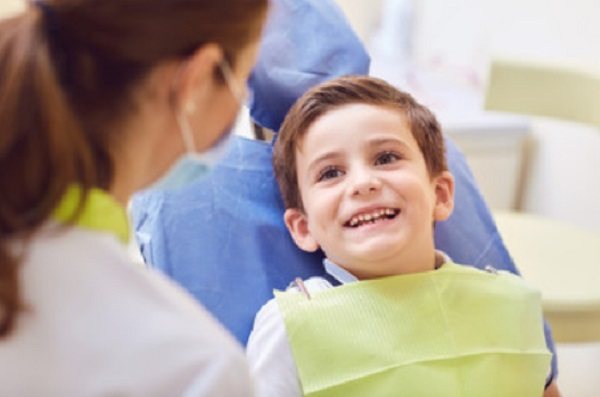
To make an accurate diagnosis, you need to visit a doctor in a timely manner. It is necessary to understand that, depending on the cause of the swelling, the child will be treated by one of the following specialists:
- pediatrician;
- infectious disease specialist;
- dentist;
- otolaryngologist;
- maxillofacial surgeon.
Initially, any of the doctors will conduct a visual examination of the patient, after which the following studies may be prescribed:
- clinical analysis of blood, urine;
- blood biochemistry;
- biopsy from a site with swelling;
- ultrasonography.
Possible consequences
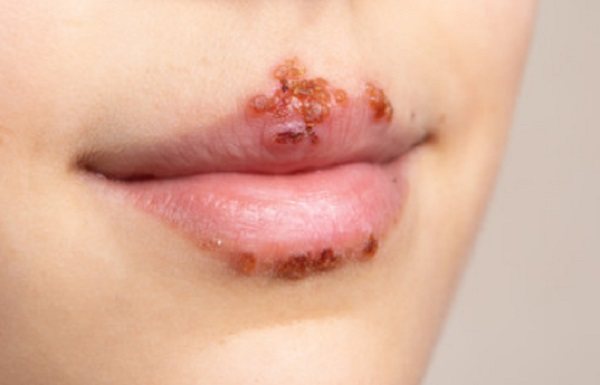
It is important to understand that in a situation where parents neglect the resulting swelling on the child’s face, they may miss precious time, and a swollen lip can lead to one of the following: complications:
- the appearance of a large scar;
- penetration of infection into the bloodstream, leading to the development of sepsis;
- spread of the area affected by the herpes virus, affecting not only the lips, but the entire face;
- rapid spread of angioedema as a result of an allergic reaction, if it occurs.
Features of treatment depending on the cause
If the lip is swollen as a result of an allergic reaction, then the main thing is to minimize the baby’s contact with the expected irritants. Often it is not possible to determine on your own what a child is allergic to. Then you should contact an allergist. After taking special samples, the doctor will prescribe treatment. To eliminate allergic manifestations, children are prescribed antihistamines.
Swelling in children often occurs due to dental problems. In this case, a pediatric dentist will help. If the upper or lower lip is swollen due to caries, it is necessary to cure the diseased tooth as quickly as possible.
READ ALSO: How to relieve pain if a child has a toothache?
Some children's lips swell along with their gums during teething. If there is an infection in the damaged gum, the doctor will prescribe anti-inflammatory drugs. If the swelling is formed as a result of mechanical damage, then the wound is lubricated with brilliant green or iodine.
READ ALSO: what gumboil looks like on a child’s gums: photo
If a child's lip is swollen and pus appears, the mouth is rinsed with hydrogen peroxide, after which the baby must be shown to a doctor. The inflammatory process is caused by an infection in the wound.
Treatment options
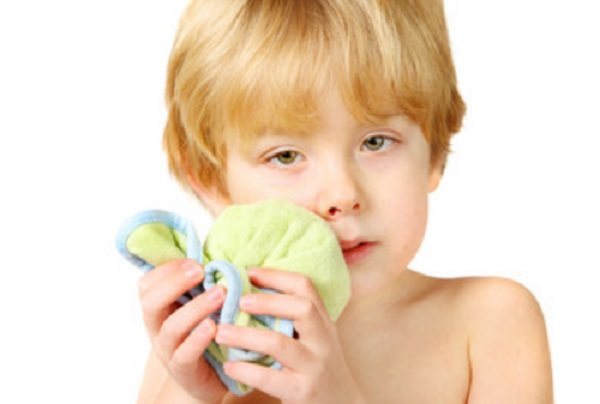
What kind of help to provide directly depends on the cause of the swelling. It is ideal if you can seek advice from a specialist who, if necessary, will prescribe certain tests and prescribe medication.
- If swelling occurs after you have visited the dentist, you can apply a lightly brewed tea bag or dry ice, previously wrapped in a cloth, to the affected area.
- In most cases, when swelling appears, doctors recommend rinsing the mouth with an antiseptic or herbal decoction.
- Any dental problem should only be treated by visiting a dentist.
- If a child has stomatitis, the doctor will prescribe special medications, often Stomatidine.
- If an allergic reaction occurs, then antihistamines are prescribed, in particular Claritin, Suprastin or Diazolin.
- If the swelling is caused by a viral infection, antiviral drugs are prescribed, in particular Acyclovir ointment, which is applied to the problem area twice a day
- If an injury occurs, the injured area is treated with an antiseptic. After the disinfectant, you can use wound healing ointments, propolis or essential oil.
- If a toddler has a bacterial infection, then local antibiotics are prescribed.
- Traditional medicine can also be used, but it is advisable to consult a doctor first:
- aloe juice (cut a piece of a leaf, squeeze the juice out of it, dip a cotton ball in this juice, apply it to the wound for 15 minutes);
- if the baby is not allergic to honey, then you can use it as a medicine by spreading a thin layer on the swelling area (leave it for about 15 minutes, after which we wash the little one thoroughly);
- You can also use a tea bag after brewing if you are convinced that you just need to relieve inflammation;
- decoction of medicinal herbs;
- herbal infusions;
- baking soda solution;
- Fuller's land.
It is important to understand that when using folk remedies, the individual characteristics of each child, his tendency to allergies, age and area of the swelling should be taken into account. Therefore, you cannot do without consulting a doctor. Self-medication can be dangerous.
What to do if your child has a swollen lip?
Many people, especially young mothers who are having their first baby and don’t have any experience yet, panic and begin to figure out what to do if the child has a swollen lip?
There are quite a few cases where a child’s lip is swollen due to an allergic reaction. If the mother knows what the child may be allergic to, it is necessary to protect her baby as best as possible from sources of irritation. If there is no such knowledge, then it is worth analyzing what the child ate. Especially note the new, just introduced food products. Assess whether the baby has been in contact with animals, poultry, household chemicals, or maybe it is an allergy to indoor dust. If you are unable to identify the source of irritation on your own, an allergist will help in this situation. After conducting test tests, he is able to accurately determine the “culprit” of children’s discomfort. The doctor usually recommends protecting the baby from the allergenic source and prescribes an antihistamine. For example, suprastin, zyrtec, kestin, cetirizine, claritin.
This is interesting: Dysplasia of primary and permanent teeth in children
The antiallergic drug Cetirizine is developed as a selective antagonist of H1-histamine receptors. Its main characteristics are excellent antiserotonin, anticholinergic and sedative properties. It is used as a drug that effectively relieves itching, swelling and has anti-inflammatory properties. Cetirizine is not addictive. For young patients, the attending doctor mainly prescribes it in the form of drops or syrups. The amount of active substance administered directly depends on the child’s age and body weight. The medicine is taken under the direct supervision of a doctor.
Toddlers from one to two years old are usually prescribed drops, which are administered in a dosage of five drops twice throughout the day.
Children whose age ranges from two to six years and whose body weight is less than 30 kg are prescribed five drops (or 2.5 ml of syrup, measured with the measuring spoon included in the package). The drug is administered twice throughout the day. Or 10 drops (or 5 ml of syrup) once, immediately before the baby goes to bed.
For older children, from six to twelve years old, weighing more than 30 kg, the drug is administered in the amount of 10 drops (or 5 ml of syrup form), taken twice a day. A one-time administration of the drug is also acceptable, but the dosage is doubled and amounts to 20 drops (or 10 ml of syrup), which are drunk immediately before going to bed.
The administration of the drug is not related to the time of the meal. The duration of therapy is adjusted by the attending physician depending on the form and severity of the allergy and can be either one or six weeks. If a sick patient is diagnosed with a disease that affects the kidneys and/or liver, the amount of the drug is prescribed purely individually, most often this dosage is half as much as the usually recommended therapeutic dosage.
Mostly, the drug in question is well tolerated by the little patient’s body, but in some cases, this medicine should not be prescribed. Such cases include hypersensitivity to the components of the drug and renal failure.
What should you do if your child’s lip is swollen due to dental problems? There is only one answer - immediately contact a pediatric dentist. Only he can understand the problem and solve it. A swollen lip in a child can cause damage to the tooth by certain pathologies, for example, dental caries. If the doctor cleans the tooth and closes the entrance canal with a filling, this may be enough to solve the problem. But sometimes it is the filling material that is the source of irritation, causing allergies, then the baby will have to be patient and have the filling replaced.
Such a reaction of a child’s body can also happen to the process of teething, and if this natural action occurs with an increase in body temperature, it is necessary to urgently seek help from a dentist. The same doctor also solves problems with pathological gum disease.
All children by nature, with rare exceptions, are terrible fidgets. Therefore, if parents notice swelling on their child’s lips, the first thing to do is to remove the possibility of a bruise or blow. If this is the result of just such an injury and the bruise is minor, then it will be enough to apply iodine to the problematic area (just in case, to prevent infection).
If an obvious inflammatory process is observed, pain symptoms appear, a purulent infiltrate begins to form, and an unpleasant odor appears from the wounds. In such a situation, it is worth disinfecting the problem area with hydrogen peroxide as soon as possible. The source of such a wound can be a cut, an accidentally ripped off pimple, or, as a consequence of a blow, a rupture of soft tissue. The affected area should be disinfected and dried with iodine. If there is no improvement, consult a doctor. If the therapy was not carried out efficiently or time was lost, then it may be necessary to open the abscess surgically.
If the reason that a child's lip is swollen is herpes or another infectious lesion, treatment includes antiviral drugs: tablet form or ointment, for example, such as acyclovir.
In the form of an ointment, the drug is applied in a thin layer to the problem area twice throughout the day until the symptoms go away.
If tablets are prescribed for oral administration, the dosage of the drug is determined individually. This indicator is influenced by the patient’s age, severity of the disease and immune status. In case of viral infection by herpes strains, patients over two years of age are prescribed 0.2 g, which corresponds to one tablet taken five times a day. The duration of treatment is five days. For children from one to two years old, the dosage is halved, the number of injections remains the same.
Contraindications to the use of this drug are the age of children under one year and individual intolerance to the components of the drug.
If ulcers are present or inflammation has affected the periosteum, urgent treatment measures must be taken. Otherwise, the inflammatory process can reach the brain tissue, which can be fatal.
Stomatidin is a local antiseptic. The medicine is used undiluted for rinsing or applied to a tampon to wipe the oral mucosa. The drug should not be swallowed. The procedure is carried out two to five times a day for 30 seconds. One procedure takes approximately 10 - 20 ml. Duration of therapy is seven days. Using the medicine in the form of an aerosol, therapeutic procedures are carried out two to three times a day, one to two presses of the nebulizer.
This is interesting: The best means for restoring and strengthening tooth enamel
While feeding a newborn with breast milk, the baby may experience swelling, which may be caused by improper feeding. When a baby is applied to the mother's breast, the baby may develop a callus in the mouth, which causes discomfort and swelling. It is necessary to reconsider the situation and change feeding tactics. Such data can be conveyed to a young mother by a visiting nurse or local pediatrician.
The baby's bad habit of biting his lips can also cause lip swelling. It is very difficult to get rid of such a problem, but it is possible and even necessary. This habit can be psychological in nature, and is caused by fear and fear. The discomfort in question can also be provoked by secondary factors: a stressful situation, low immune status, hypothermia. In this case, therapy is purely symptomatic.
It cannot be excluded that a swollen lip in a child is a symptom of damage to one or more organs of the gastrointestinal tract.
- Usually, problems of this nature appear suddenly and the sooner you take countermeasures, the faster you can get rid of the unpleasant discomfort. And if the medicine cabinet does not have the necessary medications, then you can use traditional medicine, but then, nevertheless, it is better to see the baby to the doctor.
- Take an aloe leaf and extract juice from it. The age of the plant should not be less than three years (at this time it comes into force). Soak a cotton swab or gauze folded in several layers in the liquid, or wrap the paste, and apply a lotion to the disturbing area for 15-20 minutes.
- The following components are used: Fuller's earth and such an oriental spice as turmeric, taken in equal proportions. Using water, mix the ingredients until a paste-like structure is obtained. The prepared ointment is applied to the problem area and after fifteen to twenty minutes is washed off with plenty of water.
- You can use a beekeeping product. Apply honey to the swelling and leave for a third of an hour. Wash off the remaining honey. The procedure is repeated several times throughout the day.
- Soda is diluted in a small amount of water until it becomes paste-like. The resulting medicine is used in the form of lotions. The procedure lasts ten minutes, after which the residue is washed off with enough water.
- If an insect bites you, you can apply a piece of ice to the affected area.
The happy face of a child is an unspeakable joy for his parents, but if the baby is naughty, the mother is ready to do everything to ensure that her baby returns to a good mood. If a child’s lip is swollen, it is worth taking the first steps of medical care and trying to independently find out the cause of this symptom. But it would still be a good idea to show the baby to the doctor. This step allows you not to miss a more serious disease, which became the source of the swelling. Therefore, take care of your children and be more attentive to them. Good health to the kids and their parents!
Topical products
Local emergency aid for swollen lips in children:
- iodine and brilliant green;
- hydrogen peroxide;
- Acyclovir ointment against herpes (do not use for children under one year of age) (we recommend reading: how to take Acyclovir syrup for children?);
- Stomatidin is an antiseptic mouth rinse;
- antifungal ointments (Lamisil);
- oxolinic ointment (we recommend reading: instructions for use of oxolinic ointment for children).
Preparations for oral administration
The cause of swollen lips can be herpes, which manifests itself in the form of accumulations of blisters with liquid (we recommend reading: how can you treat herpes on the lips in children?). To treat the virus, special ointments and antiviral drugs are used.
After establishing the reason for the swelling of the upper or lower lip, the doctor recommends for oral administration:
- antiallergic drugs: Fenistil, Suprastin, Zyrtec, Cetirizine (for infants);
- antiviral drugs: Orvirem, Rimantadine, Arbidol, Anaferon, etc. (we recommend reading: how to take Arbidol children's syrup?).
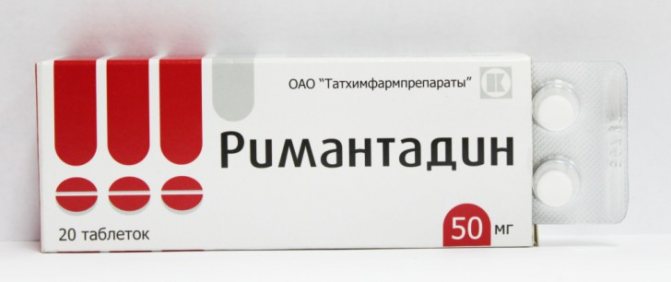
Before giving tablets to a child, you need to study the instructions in detail. Many medications have serious contraindications.
Folk remedies
To treat swollen lips, traditional medicine is used, which is effective and safe. Aloe (agagave) will help with the inflammatory process. To do this, take 1 leaf of the plant and squeeze out the juice. Moisten a piece of cotton wool with it and apply to the inflamed area for 20 minutes.
Bee products cope well with inflammation. They can be used for treatment only if the child does not have allergies. It is enough to lubricate a swollen lip with honey several times a day.
Soda lotions are suitable for relieving swelling. Baking soda is diluted with water to the consistency of a thick paste. Compresses with the resulting mixture are made several times a day until the swelling goes away.
Precautionary measures
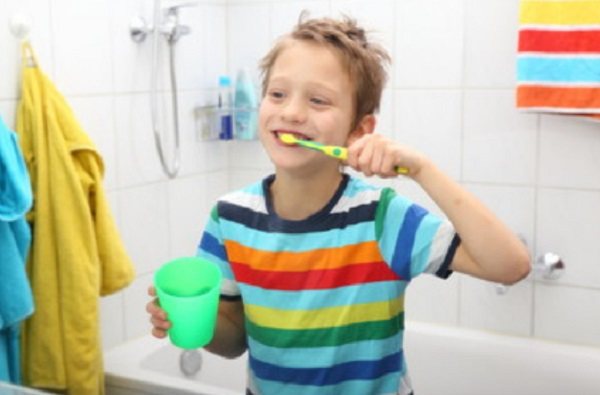
Of course, parents cannot do anything to protect their child without allowing any health problems to arise. However, they can follow certain recommendations in order to significantly reduce the likelihood of this type of swelling.
- Give your child thoroughly washed fruits and vegetables.
- Make sure that your baby follows the rules of personal hygiene, washes his hands, but also pays considerable attention to the sanitation of the oral cavity.
- Try to avoid injury.
- If your child is prone to allergic reactions, prevent contact with the allergen and have an antihistamine on hand.
- During seasonal exacerbations, give your baby antiviral drugs, means to strengthen the immune system, including a complete complex of vitamins and minerals as a preventive measure.
- Do not delay contacting the dentist; treat your dental problems in a timely manner.
- Prevent the occurrence of psycho-emotional stress and stressful situations.
Now you know what to do if your child has a swollen lip. Remember that your actions should be determined by the root cause of the condition that has arisen. Do not ignore this phenomenon, as it can often indicate the presence of a pathology and require the help of a doctor.
